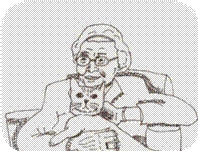Although life changes as we age, people who enjoy the company of pets rarely outgrow that trait. Most feel as they become senior citizens they don’t have the patience and energy to care for a young pet. Housebreaking dogs and keeping kittens out of trouble can be exhausting. But, adopting an older pet could be a great solution. In this scenario everyone wins! The human gets a companion and the senior pet gets a new home and a chance to live the remainder of their lives out of the shelter. They are housebroken, trained and calmer than the younger pets. Families with younger members typically desire younger pets, leaving the older ones behind – sometimes destined to live the rest of their lives in a cage or small run.
 Studies have shown that not only do pet owners have a constant companion, but they are less lonely, more likely to exercise, derive satisfaction from owning the pet and have lower blood pressures. It also seems to stave off depression. Senior pet owners tend to feel self-sufficient and dependable when it comes to caring for their pet. Not to mention the unconditional love and attention bestowed upon them by the pets, regardless of the owner’s age or amount of gray hair they possess.
Studies have shown that not only do pet owners have a constant companion, but they are less lonely, more likely to exercise, derive satisfaction from owning the pet and have lower blood pressures. It also seems to stave off depression. Senior pet owners tend to feel self-sufficient and dependable when it comes to caring for their pet. Not to mention the unconditional love and attention bestowed upon them by the pets, regardless of the owner’s age or amount of gray hair they possess.
It appears that pet ownership among seniors also has some health benefits. Pets allow the individual to escape stress and concentrate on something other than their own health issues. A 1990 UCLA study showed that pet ownership could actually improve overall health and reduce the time seniors spend in a doctor’s office.
Pet ownership can serve as a conversation icebreaker for the senior, especially since pet owners are attracted to one another. Everyone loves to talk about their pets!
 There is also the sad realization that younger pets could outlive their owners. Shelters are full of animals that find themselves in this predicament. Matching a senior pet with a senior human could minimize this problem. All the challenges of aging, aches and pains, lack of mobility, memory, hearing and sight loss, make the senior citizens sharply aware of what it is like to get older and makes them uniquely qualified to care for an aging pet. They can sympathize with their pet and go through the challenges together.
There is also the sad realization that younger pets could outlive their owners. Shelters are full of animals that find themselves in this predicament. Matching a senior pet with a senior human could minimize this problem. All the challenges of aging, aches and pains, lack of mobility, memory, hearing and sight loss, make the senior citizens sharply aware of what it is like to get older and makes them uniquely qualified to care for an aging pet. They can sympathize with their pet and go through the challenges together.
Several members of my family had dogs well into their senior years. In these cases, their spouses had passed and they were alone. They would tell me on more than one occasion that if it wasn’t for the pet needing something, they wouldn’t even get out of bed in the morning. The pet’s needs drove them to remain able-bodied and healthy and gave them something to care for. They enjoyed being needed during a time when their own families had moved on and were living their own lives.
Who would benefit from these relationships? In my opinion, both pet and owner would reap the rewards. It is definitely something to consider for the senior in your life.
